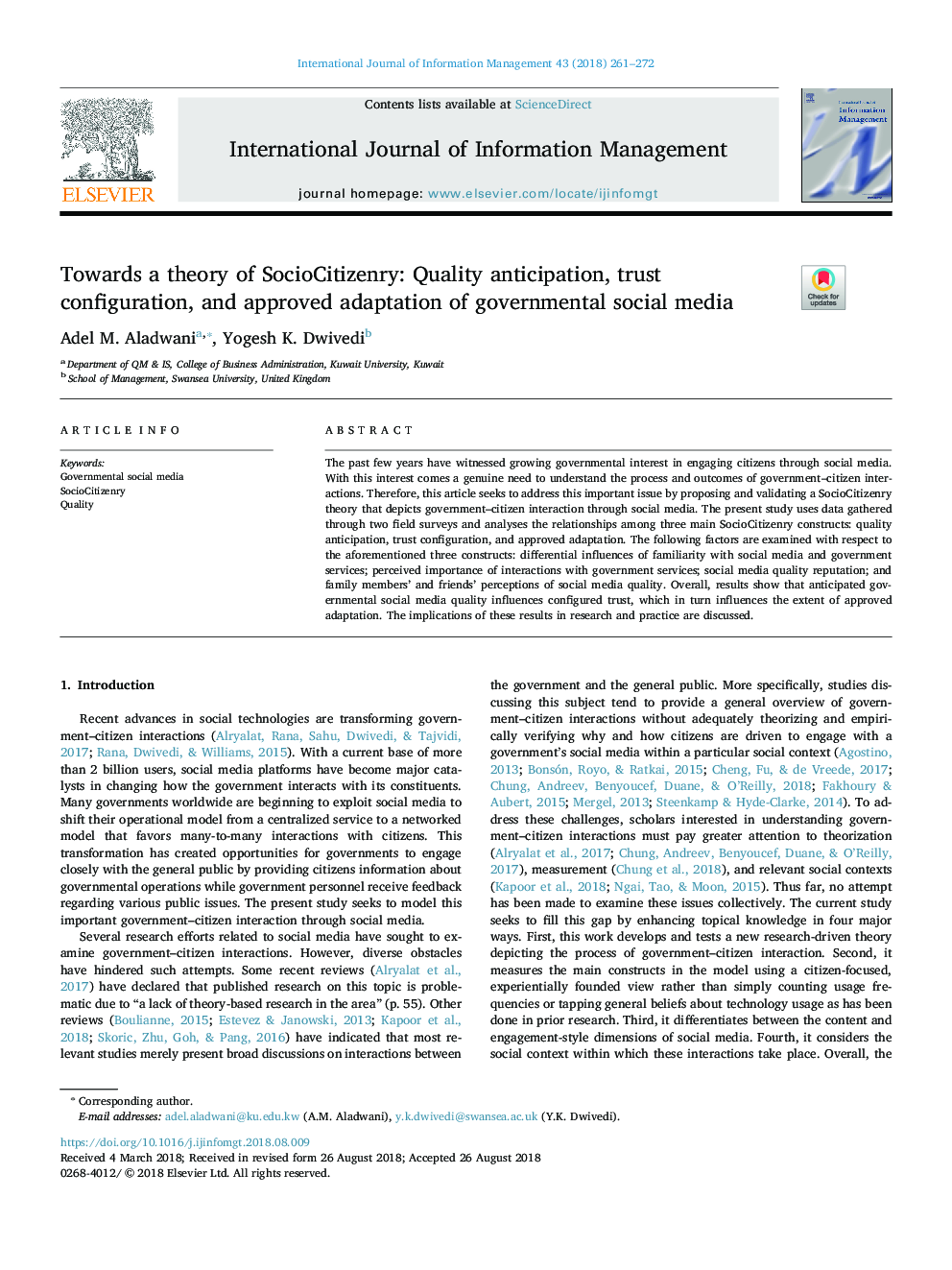| Article ID | Journal | Published Year | Pages | File Type |
|---|---|---|---|---|
| 11005141 | International Journal of Information Management | 2018 | 12 Pages |
Abstract
The past few years have witnessed growing governmental interest in engaging citizens through social media. With this interest comes a genuine need to understand the process and outcomes of government-citizen interactions. Therefore, this article seeks to address this important issue by proposing and validating a SocioCitizenry theory that depicts government-citizen interaction through social media. The present study uses data gathered through two field surveys and analyses the relationships among three main SocioCitizenry constructs: quality anticipation, trust configuration, and approved adaptation. The following factors are examined with respect to the aforementioned three constructs: differential influences of familiarity with social media and government services; perceived importance of interactions with government services; social media quality reputation; and family members' and friends' perceptions of social media quality. Overall, results show that anticipated governmental social media quality influences configured trust, which in turn influences the extent of approved adaptation. The implications of these results in research and practice are discussed.
Keywords
Related Topics
Social Sciences and Humanities
Business, Management and Accounting
Management Information Systems
Authors
Adel M. Aladwani, Yogesh K. Dwivedi,
